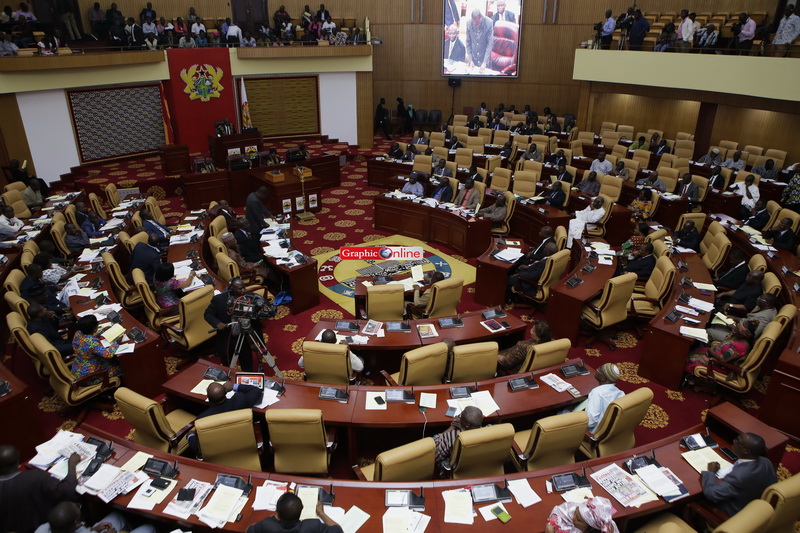
Ghana’s nuclear source documents go to Cabinet this month
Ghana’s quest to generate electricity from a nuclear source is on course, as its Programme Comprehensive Report, which documents the progress made in phase one of the project, is to be submitted to the Cabinet this month.
That, along with parliamentary approval and endorsement by the International Atomic Energy Agency (IAEA) will open the door for phase two, which involves feasibility studies, from next year.
Mr Theophilus Nii Okai, the Executive Director of Nuclear Power Ghana (NPG), operator/owner of the country’s future nuclear plant, told the Daily Graphic that Ghana had made some huge leaps in its pursuit to build a nuclear plant, which had the potential to transform the energy sector.
“We are aware of the energy crisis the country faced in the recent past. We need what is called a stable base-load power supply. If you have that, you get a certain level of reliability in your network.
“A base-load is a massive power plant that can run for months and months without shutting down. A nuclear power plant can run for 24 months without interruption. There are even some that have gone beyond that,” he said on the fringes of a training programme for some journalists in Accra organised by the NPG to sensitise the media to matters related to Ghana’s nuclear power programme.
For Ghana to begin the operation of a nuclear power plant, it needs to meet three IAEA milestones, which could take from 10 to 15 years, and meet rigorous 19 infrastructure requirements, including safety management, regulatory framework and radiation safety.
Ghana’s nuclear history
Ghana started exploring the possibility of harnessing nuclear energy for power generation in 1963 when it launched the reactor project under the watch of the Ghana Atomic Energy Commission (GAEC).
However, the dream stalled in 1966 with the coup that toppled Dr Kwame Nkrumah, but a series of erratic power supply as a result of energy crisis from the 1980s and more recently from 2012 to 2016 rekindled the discussion on nuclear power generation.
Case for nuclear
Making a case for nuclear energy, Mr Okai said nuclear power had the benefits of very low operating costs, zero carbon emission, reliable power generation, huge employment opportunities and stable fuel supply.
Earlier, in a presentation on why the country needed nuclear power and the role of the owner/operator and IAEA milestones, he said contrary to perceptions that nuclear energy was not safe, there were integrated and a consistent set of safety requirements that must be met to ensure the protection of people and the environment both now and in the future.
He observed that no developed country had advanced without the use of nuclear energy, citing South Africa as the only African country that used nuclear energy and was considered an economic giant.
Safety concerns
Nuclear energy has been praised for its capability of generating high-capacity energy at a much cheaper cost and its immense contribution to climate change mitigation, but its critics have often used the possibility of excessive doses of radiation resulting in people contracting diseases such as leukemia, lung cancer, thyroid cancer, breast cancer and cancers of other organs as a weapon to reject it.
Green America, a US-based organisation, has indicated that persons living close to nuclear facilities risk getting cancers.
However, the NPG’s Director of Nuclear Safety and Waste Management, Dr Stephen Yamoah, dispelled the notion, insisting that the nuclear energy industry was the most regulated, with no room for carelessness.
He said passengers on a six-hour flight, for instance, absorbed more radiation than someone who had worked at a nuclear energy facility for 10 years.
He said current design and technology reduced the direct involvement of people in loading fuels onto nuclear plants, adding that nuclear energy was feared because the technology started as a tool for warfare and there had been a few nuclear disasters in the past.
The melting of the Chernobyl nuclear plant in Ukraine in April 1986 is the worst in world history. The explosion claimed thousands of lives, caused countless birth defects and unleashed a thyroid cancer epidemic on the region.
In March 2011, the Japanese city of Fukushima also recorded a nuclear disaster triggered by a tsunami, with thousands of deaths recorded in the twin disaster, but a May 2012 United Nations committee report stated that none of the six Fukushima Nuclear Plant workers who had died since the tsunami had died from radiation exposure.
